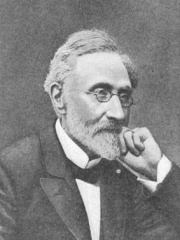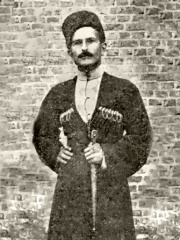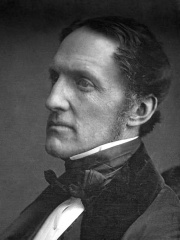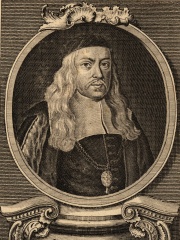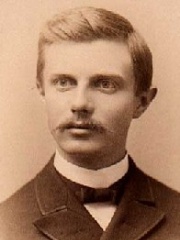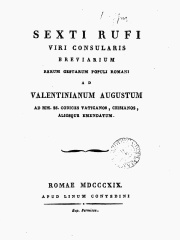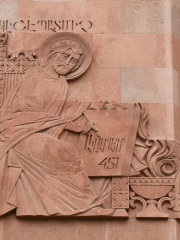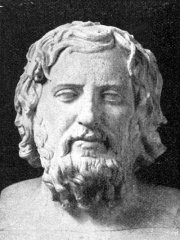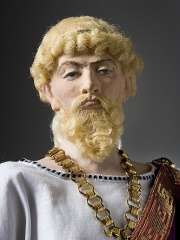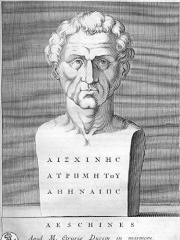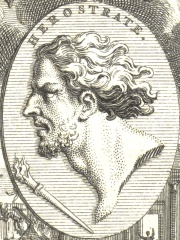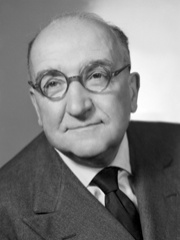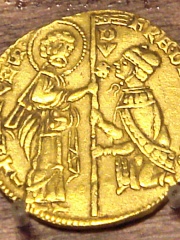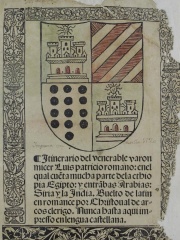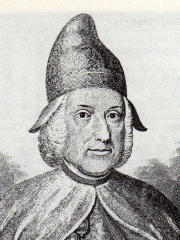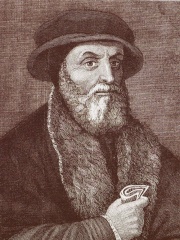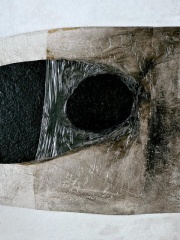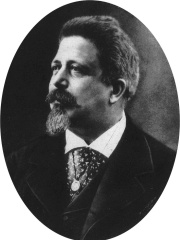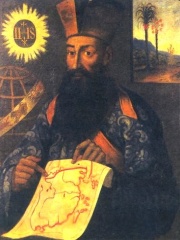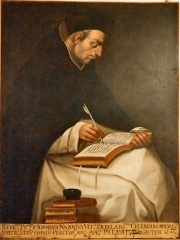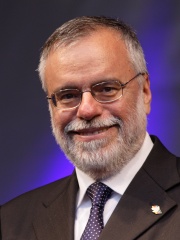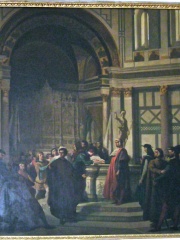Historian
Philistus
430 BC - 356 BC
EN.WIKIPEDIA PAGE VIEWS (PV)
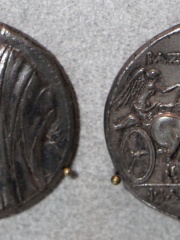
 Philistus
Philistus
His biography is available in 20 different languages on Wikipedia (up from 17 in 2024). Philistus is the 262nd most popular historian (down from 191st in 2024), the 2,772nd most popular biography from Italy (down from 2,412th in 2019) and the 18th most popular Italian Historian.
Memorability Metrics
Page views of Philistus by language
Among Historians
Among historians, Philistus ranks 262 out of 561. Before him are Heinrich Graetz, Régine Pernoud, Zeev Sternhell, Alexander Svanidze, William H. Prescott, and Lucius Coelius Antipater. After him are Hermann Conring, Thomas the Archdeacon, Peter Brown, Frederick Jackson Turner, Festus, and Elishe.
Most Popular Historians in Wikipedia
Go to all RankingsHeinrich Graetz
1817 - 1891
HPI: 60.13
Rank: 256
Régine Pernoud
1909 - 1998
HPI: 60.11
Rank: 257
Zeev Sternhell
1935 - 2020
HPI: 60.11
Rank: 258
Alexander Svanidze
1886 - 1941
HPI: 60.10
Rank: 259
William H. Prescott
1796 - 1859
HPI: 60.09
Rank: 260
Lucius Coelius Antipater
180 BC - 120 BC
HPI: 60.08
Rank: 261
Philistus
430 BC - 356 BC
HPI: 60.06
Rank: 262
Hermann Conring
1606 - 1681
HPI: 60.04
Rank: 263
Thomas the Archdeacon
1200 - 1268
HPI: 60.02
Rank: 264
Peter Brown
1935 - Present
HPI: 60.01
Rank: 265
Frederick Jackson Turner
1861 - 1932
HPI: 59.98
Rank: 266
Festus
390 - 380
HPI: 59.98
Rank: 267
Elishe
410 - 475
HPI: 59.88
Rank: 268
Contemporaries
Among people born in 430 BC, Philistus ranks 5. Before him are Xenophon, Dionysius I of Syracuse, Cynisca, and Aeschines of Sphettus. Among people deceased in 356 BC, Philistus ranks 2. Before him is Herostratus.
Others Born in 430 BC
Go to all RankingsXenophon
HISTORIAN
430 BC - 354 BC
HPI: 82.05
Rank: 1
Dionysius I of Syracuse
POLITICIAN
430 BC - 366 BC
HPI: 73.43
Rank: 2
Cynisca
POLITICIAN
430 BC - 389 BC
HPI: 65.57
Rank: 3
Aeschines of Sphettus
PHILOSOPHER
430 BC - 360 BC
HPI: 64.46
Rank: 4
Philistus
HISTORIAN
430 BC - 356 BC
HPI: 60.06
Rank: 5
Others Deceased in 356 BC
Go to all RankingsHerostratus
EXTREMIST
301 BC - 356 BC
HPI: 77.45
Rank: 1
Philistus
HISTORIAN
430 BC - 356 BC
HPI: 60.06
Rank: 2
In Italy
Among people born in Italy, Philistus ranks 2,772 out of NaN. Before him are Emanuele d'Astorga (1680), Adolfo Baloncieri (1897), Ernesto Ambrosini (1894), Adone Zoli (1887), Francesco Dandolo (1258), and Ludovico di Varthema (1470). After him are Alberto Gilardino (1982), Marco Foscarini (1696), Daria Nicolodi (1950), Guido Bonatti (1210), Alberto Burri (1915), and Benedetto Cairoli (1825).
Others born in Italy
Go to all RankingsEmanuele d'Astorga
COMPOSER
1680 - 1736
HPI: 60.09
Rank: 2,766
Adolfo Baloncieri
SOCCER PLAYER
1897 - 1986
HPI: 60.09
Rank: 2,767
Ernesto Ambrosini
ATHLETE
1894 - 1951
HPI: 60.09
Rank: 2,768
Adone Zoli
POLITICIAN
1887 - 1960
HPI: 60.08
Rank: 2,769
Francesco Dandolo
POLITICIAN
1258 - 1339
HPI: 60.07
Rank: 2,770
Ludovico di Varthema
WRITER
1470 - 1517
HPI: 60.07
Rank: 2,771
Philistus
HISTORIAN
430 BC - 356 BC
HPI: 60.06
Rank: 2,772
Alberto Gilardino
SOCCER PLAYER
1982 - Present
HPI: 60.06
Rank: 2,773
Marco Foscarini
WRITER
1696 - 1763
HPI: 60.06
Rank: 2,774
Daria Nicolodi
ACTOR
1950 - 2020
HPI: 60.06
Rank: 2,775
Guido Bonatti
ASTRONOMER
1210 - 1296
HPI: 60.05
Rank: 2,776
Alberto Burri
PAINTER
1915 - 1995
HPI: 60.05
Rank: 2,777
Benedetto Cairoli
POLITICIAN
1825 - 1889
HPI: 60.05
Rank: 2,778
Among Historians In Italy
Among historians born in Italy, Philistus ranks 18. Before him are Tyrannius Rufinus (345), Andrea Alciato (1492), Peter Martyr d'Anghiera (1457), Martino Martini (1614), Antiochus of Syracuse (-450), and Annius of Viterbo (1437). After him are Festus (390), Marino Sanuto the Younger (1466), Filippo Baldinucci (1625), Quintus Claudius Quadrigarius (-200), Andrea Riccardi (1950), and Dino Compagni (1255).
Tyrannius Rufinus
345 - 411
HPI: 66.16
Rank: 12
Andrea Alciato
1492 - 1550
HPI: 66.10
Rank: 13
Peter Martyr d'Anghiera
1457 - 1526
HPI: 64.55
Rank: 14
Martino Martini
1614 - 1661
HPI: 62.93
Rank: 15
Antiochus of Syracuse
450 BC - 450 BC
HPI: 62.68
Rank: 16
Annius of Viterbo
1437 - 1502
HPI: 61.05
Rank: 17
Philistus
430 BC - 356 BC
HPI: 60.06
Rank: 18
Festus
390 - 380
HPI: 59.98
Rank: 19
Marino Sanuto the Younger
1466 - 1536
HPI: 59.46
Rank: 20
Filippo Baldinucci
1625 - 1697
HPI: 59.04
Rank: 21
Quintus Claudius Quadrigarius
200 BC - 100 BC
HPI: 58.13
Rank: 22
Andrea Riccardi
1950 - Present
HPI: 58.10
Rank: 23
Dino Compagni
1255 - 1324
HPI: 57.67
Rank: 24
